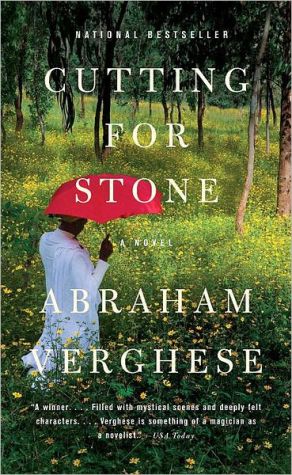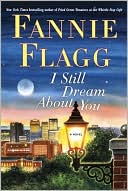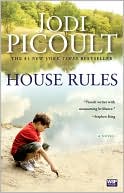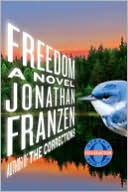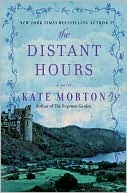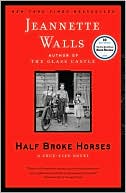Half-Moon Scar
Amy, a lesbian in her thirties, has established an academic career and a relationship in a city far from her small Midwestern hometown. After years of having no contact with her old friends, Amy discovers that her high school crush, Gina, is still living in Willow Bay, which prompts her to finally go back for a visit. But whens he arrives, Amy finds childhood pal Gavin, a gay man who is living with Gina, suffering from anorexia; Gina herself is moodily detached from life and relationships....
Search in google:
Amy is a thirtysomething lesbian who escaped her small, Midwestern hometown of Willow Bay, Wisconsin, to pursue an academic career and establish a life with her lover. After years away from Willow Bay, she returns to visit the people she's left behind-only to discover that her old friends Gina and Gavin have learned to dissociate from their pasts in extreme ways that rival her own. Amy's tendency toward self-mutilation parallels both Gavin's anorexia and Gina's moody detachment from life, and Amy soon begins to fear for Gavin's life while becoming more and more bewildered by Gina's behavior.As past and present collide and the visit extends far beyond its intended length, Amy finds that she must reconcile the tense relationship with her family and her long-standing attraction to Gina, as well as her past romantic experimentation with Gavin. Together, Amy, Gina, and Gavin examine the scars—both emotional and physical, visible and invisible—that pervade their still-unresolved lives.Out Magazine - Bethany SchneiderIn to the point prose that is nonetheless emotionally charged Green delivers a hard-hitting coming of age story that perfectly evokes small-town Wisconsin in the '70's.
victoria and main i sat in my mother’s car outside Gina’s house, the map of Willow Bay in my lap, finger on the corner of Victoria and Main. My mother’s car smelled like hand lotion and those thick tissues that come in pink boxes. Rain hit the windshield. Across the street was a Catholic church and a Catholic church school, a green lawn, sprinklers turning in the rain. The rain on the windshield blurred the school and the green lawn. When my Lutheran mother married my Catholic father, the room in the basement of the Lutheran church where they held the reception could have been divided by an electric fence, my mother said. No one crossed—no one wanted to get zapped. After they got married my dad converted and I never went into a Catholic church.\ My finger pressed the map. Victoria and Main. This had to be the house: beige with orange trim, two stories, clapboard siding. Paint had fallen off in chunks, and cracks branched up from the foundation. Gina’s house. When I had spun that globe and stuck that tack into its skin, the tack landed here, on this house.\ I put the map on the passenger seat, brushed the side of the door for the handle, found it, stepped out. Rain hit my glasses. I watched my feet walk up the gravel drive. Black sneakers. Army surplus jacket. Chocolate-covered apricots in a silver box. All to say: Dyke from the City. The One Who Got Out.\ But my heart had started up. Flutter, flap. A bird stuck in a chimney.\ The steps up to the screened-in front porch had crumbled. Faint television voices came through the closed window above me. I rang the doorbell, a rectangle glowing orange.\ A voice said, “Amy?”\ Gina came around the side of the house. Gina Winiecki. She had that same hair brushed back, not as blond as it had been. Long, yellow-haired legs ended in running shoes without socks. Her hands turned open toward me, long-fingered hands, and we hugged, my body touched by the impression of small breasts, narrow shoulders and waist, and then the air and rain were between us, and a faint smell of sweat. “Gina,” I said.\ “Amy.” She smiled, tongue showing, crooked eyeteeth showing.\ I followed her around the house to the back door. Apple trees and a picket fence and a beige garage screened the yard from the traffic behind it on Main. The yard was a dandelion yard, gold dandelions three feet high. Rain dripped from an apple tree onto a picnic table.\ On the landing I hung my jacket and followed Gina up three stairs to the kitchen. “Chocolate-covered apricots,” I said, holding out the box. “I hope you’re not allergic. My girlfriend is allergic to the sulfur they use on apricots.” I watched her eyes when I said “my girlfriend” and they looked right at mine. She bit the cellophane on the box to get it started and her long fingers peeled the cellophane off. She opened the lid: fat lumps of chocolate. She smiled, lips closed, and replaced the lid without eating any. “Thank you. Cup of tea?”\ I sat in a folding chair at the table. The wallpaper—above the counter, along the table—had red roosters and brown teapots. Around the stove the roosters and teapots were polka-dotted with red splatters. Gina filled a teakettle with water and turned on the burner. “It’s been a long time,” I said.\ “Thirteen years.” Gina reached into the cupboard and brought out blue mugs. “Unlucky thirteen.”\ “Thirteen?” I could feel the imprint of her hand on my waist in the darkness of the amusement park ride.\ “Thirteen years ago,” Gina said, “I went through your line at the Red Owl.”\ I felt again the rubber mat under my feet, my fingers on the cash register keys.\ “Remember? Just before you left.” She was taking tea boxes out of the cupboard. “I remember because you told me you were going to Madison and I was short—I think it was a carton of cigarettes—and you said you’d cover me.”\ Yes. Gina buying a carton of cigarettes in my line at the Red Owl. I remembered looking at her hands as they picked up the carton.\ Gina said, “So what’s happened in thirteen years?” As she made tea, I told her about college and graduate school and tenure. I didn’t tell her about the woman who slept with her ex again—“Just once. Why are you so uptight?” The one who kicked me out of my own car and made me walk the two miles back home. The one who pushed me, not hard really, just enough for me to fall and sprain my wrist. I didn’t tell her about Robin, either, who, when I was sick, made tea from her own mint, whose exes lived in other states, and who, just weeks before, had said it was time we combined our households, and she would sell her house and garden if I wanted to find a new house together.\ When it was Gina’s turn, she said nothing about lovers either. She told me she tended bar at night, coached girls’ soccer and basketball, and worked in the summers as a day-camp counselor. “They don’t pay squat,” she said, “but I like working outside.” Then silence.\ What else to say? I said, “Nice house. Do you own it?”\ “No. Cheap rent though.”\ “That’s good.”\ By then she’d poured three cups of tea, and I thought: Roommate? Lover? She smiled, tongue showing, crooked eye-teeth showing. “Let’s go to the front room.”\ She shouldered through a swinging door to the front of the house. I followed with my cup through a dim living room, fireplace on the right, screened front porch ahead. On the left were French doors. She nodded at them, her hands full. I turned the glass handle. The door opened to the smell of unwashed sheets, to white walls, to television voices. And under an orange afghan, to Gavin.\ “Amelia!”\ My knees loosened and the muscles in my calves had to straighten me up. Gavin. The last words I’d said to him: “Freak. Fag.” The last time I’d seen him: pulling up his pants, white face in the darkness.\ His eyes now were big, the big of eyes behind glasses, but he didn’t wear glasses. His cheeks and the cleft in his chin had gone shallow. The word for his illness ballooned in the back of my throat.\ He elbowed the pillows to push himself upright. “Amelia.” Gavin’s voice. The sound came to me more like a smell than a sound, calling up memories. His younger face swam beneath the surface of this grown-up stranger’s face. But the half-moon scar was there on his nose, and when I saw it I knew he was really Gavin.\ The couch sank under my weight. His thin arms wrapped around me, and I held his voice as much as his body. He didn’t smell like Gavin or look like Gavin or feel like Gavin but he sounded like Gavin.\ When I sat back, Gina was sitting on an ottoman, holding the two mugs of tea. Her long calves tensed and released, tensed and released. She leaned forward with Gavin’s mug and he took it. We held our mugs, white hands around blue porcelain.\ Gavin muted the television and tucked the afghan around his waist. “Surprise! Were you surprised?” His smile spread across hollow cheeks.\ “Yes.” I tried to breathe into my belly, the way Robin had taught me.\ “And you didn’t guess?”\ “How could I guess?”\ He turned his head to look at Gina. “You did good.”\ Gina held her mug right under her nose.\ “I had no idea you were even in Willow Bay,” I said. No idea you were alive. No idea I would ever see you again.\ “Nobody does. I snuck into town.”\ “When?”\ “Last summer. Long boring story of my life. Nowhere else to go, really, so it’s back home. I lived with my brother for a couple months, then Gina took me in. She’s just like the Humane Society. She’ll put me to sleep if she can’t find another owner.”\ “Please,” Gina said. She was watching pioneers ride their wagons across the plains.\ “And you’re here,” Gavin said. He looked in the mug, wrinkled his nose, put the mug on the floor. “Who’s the girlfriend?”\ “Robin?” I looked down at my hand. No ring on my finger, yet.\ “Ha,” he said. “I knew it.”\ “What?”\ “The air of a married lesbian.” He laced his fingers together and turned the palms out, cracking his knuckles. “We were wondering if you turned out to be a dyke.” He winked at Gina, who wasn’t looking at him.\ I tried to smile. The mug, resting on my knee, was warm.\ “We are, too.” Gavin patted his hair, pale brown, thin. “Dykes. I’m the femme.” He coughed. He put his fist over his mouth and coughed again. His face went red. The coughs were thick and deep, and I put my hand on the afghan, on his leg—my hand tightened around nothing. Watery muscle, slippery bone. He patted the floor for the mug. Gina’s eyes stayed on the television.\ “You’re sick,” I whispered.\ He patted his chest. “Under the weather.”\ The sun was breaking through, the walls whitening. I held my mug again, but I could still feel the thigh that was bone. I looked around the room: a jade plant crowded in its pot, an old television on a metal cart, a poster of the moon with all its craters labeled.\ Gina took off her sweatshirt and the T-shirt underneath said, WILLOW BAY HALF MARATHON. “Are you a runner?” I asked.\ “The girl runs,” Gavin said. He coughed, a small cough. “Six A.M. every morning. I hate her.”\ “Not every morning,” Gina said.\ Gavin draped his arm over the back of the couch. “Do you like exercise, Amelia? Because I hate people who like exercise.” The couch was orange and brown plaid.\ “Don’t give me that shit,” Gina said. “You love to exercise.”\ A commercial for a secretarial school came on the television. Gavin grabbed the remote and hit a button on it, changing the channel. “Hate that commercial.”\ Gina got up and left the room, running shoes squeaking.\ “Premenstrual,” Gavin said. Channels flickered over the television. “Ms. Miller.”\ “Mr. North.”\ “You look great. How are you?”\ “I’m good.”\ “The story of your life in fifty words or less.”\ “Okay.”\ “Sixty-two, but no more.”\ So I told my story again, college–Seattle–grad-school–tenure, and again I said nothing about Robin. But I could hardly focus on the meaning of the words, Gavin’s eyes were so big and round, his neck shrunken. I finished, hardly knowing what I’d said.\ “That’s forty-three words too many.”\ “Forgive me.”\ He settled back on the pillows. “So you’re a big academic now. Your parents must be proud.”\ “I guess. How’s your family?”\ “Troy’s okay. Bonnie’s remarried.”\ “Your mom?”\ He picked at a stray thread on the afghan. “Haven’t talked to her.” I squinted my eyes at him. He never could stand that. He said, “She doesn’t know I’m back.”\ My mouth was open. “You’ve been here a year? Your brother must have told her.”\ “I’ve got things on Troy. He knows better than to tell my secrets.”\ “But why?” And then I realized why, and a big cold emptiness opened in my stomach. He didn’t want her to see him like this.\ “I keep meaning to call her,” he said, “but the longer it goes, the harder it is.”\ I reached for his leg under the afghan and made myself hold the bone without flinching. Gavin’s eyes had moved back to the television, where boys drank soda on a beach.\ “My family’s good,” I said. “Laura’s married and has two kids now, and Molly’s not married and has a kid.”\ Gavin’s eyebrows went up. “Molly’s got a love child. How are your parents with that?”\ “They seem fine about it. And Richard’s the same.”\ “Richard. Still living at home?”\ “Still living at home. I guess my parents will be able to take care of him for a while longer. Then, I don’t know.” I couldn’t hold on anymore. I picked up my mug, stood. “I’m probably tiring you out.”\ He said, “The butler would see you out but we’ve given him the day off.” His legs crossed under the afghan. “It’s great to see you, Amelia.”\ I leaned in toward his cheek and at the last second his face moved so that I had to kiss his mouth. Dry lips. Stubby whiskers.\ In the kitchen, water ran in the sink. Gina was dropping dishes into it. “It’s not what you think,” she said, her back to me.\ “It’s not what?”\ Her back was narrow under the T-shirt, her legs long and ropy with veins. “It’s not HIV. The asshole is anorexic.”\ The word boomeranged in my head. Anorexic. That strange X sound. That hard C. Once when I was a kid I said the word “elbow” over and over again until it didn’t mean anything. “Anorexic” did that now. Gavin was anorexic. No virus in his blood. The virus of scarcity, of self-denial.\ My fingernails dug into my palms. “He won’t eat?”\ “He won’t eat.”\ “Have you taken him to the hospital?”\ “He won’t go. I can’t make him.”\ “Get an ambulance.”\ “He doesn’t want to go.”\ “He could die.”\ “He could die.”\ Roosters and teapots ran over the walls. I looked at my palms: eight fingernail marks. Not for the first time.
\ From Barnes & NobleOur Review\ Coming of Age\ Allison Green, a professor of women's studies at a Washington State community college, has penned a bittersweet coming-of-age tale about three people whose lives are indelibly entwined and darkly colored by their shared past and their sexual orientation. In Half-Moon Scar, Green explores the complex emotions tied in with growing up gay in small-town America. \ Though she now lives in Seattle with her longtime lover, Amy, a 30-something lesbian, feels a need to return to her roots in Willow Bay, Wisconsin, the small town where she grew up. Two of Amy's closest childhood friends still live in Willow Bay, and the history they share is a complicated one. There's Gavin, a cross-dressing gay man who was once Amy's closest friend until an episode of sexual experimentation drove them apart. And there's Gina, once a gregarious tomboy and the lead instigator in games of "Smear the Queer" that were aimed at Gavin. Amy has had a crush on Gina since high school, though Gina's one attempt to make a pass at Amy resulted in a trip to the emergency room.\ Amy is shocked to discover that her memories of her friends hardly square with their current reality. Gina has closed herself off from nearly everyone she knows. Gavin's damaged self-image is manifesting itself in a severe case of anorexia that is threatening his life. And although Amy understands what motivates them both -- she has her own history of self-mutilation -- she feels powerless to help. Plus she carries guilt for the hurtful things she said about Gavin those many years ago. All three bear metaphorical scars that run much deeper than the half-moon-shaped physical scar on Gavin's nose. And some of Amy's wounds have yet to heal. But before they can, she must confront some harsh truths about herself and face past demons, her present doubts, and future fears.\ Green's prose is deceptively simple, a seemingly superficial cover for a deeply powerful message. Her exploration of the twisted and complex lives, the emotional and physical scars, and the shattered hopes and dreams of these three struggling characters is at once both universal and singular. Green carefully avoids any easy solutions or trite machinations, and although the outcome isn't a complete resolution, it satisfies emotionally (and metaphorically).\ \ \ \ \ \ Bethany SchneiderIn to the point prose that is nonetheless emotionally charged Green delivers a hard-hitting coming of age story that perfectly evokes small-town Wisconsin in the '70's. \ —Out Magazine\ \

